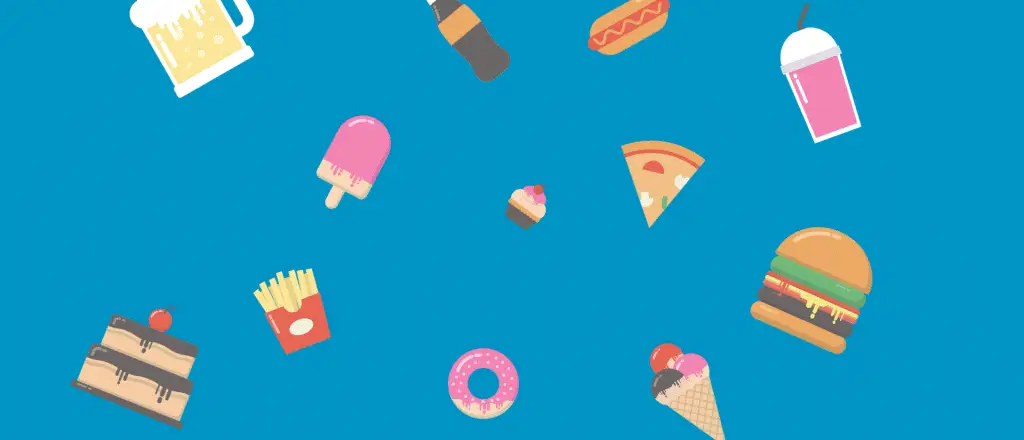
The most common culprit of cavity-causing decay in the mouth is a pH imbalance. In order to promote good oral health, you must choose foods and drinks that are unlikely to cause damage to the teeth through decay, acid erosion, and fractures. Combat decay by drinking plenty of plain water, and eating nutritious foods like whole grains, vegetables, lean proteins, and dairy.
In combination with a healthful diet, it’s important to neutralize the acidity in the mouth by brushing and flossing regularly.
Did you know that the foods you eat and the beverages you drink have a direct effect on the health of your teeth? The health of your teeth also has a direct effect on your diet and subsequent nutrition.
Most people do not realize how essential your oral health is to your ability to obtain proper nutrition, as you must have healthy teeth and strong supporting structures (gums and underlying bone) to create adequate force for chewing food.
Many people think digestion begins in the stomach, but that is incorrect. Chewing is the essential first step in the digestive process. Officially termed mastication, the action of chewing provides both a mechanical and chemical breakdown of food particles.
Chewing also increases saliva production to lubricate the mouth and aid in swallowing. Saliva contains important enzymes that begin the chemical breakdown of molecules in food.
Without a full complement of teeth and a solid foundation surrounding them, your ability to chew properly and thoroughly decreases. People who suffer from periodontal disease and have loose, unstable teeth generate less chewing force. Those who are missing multiple teeth cannot adequately grind their food and end up swallowing larger particles of food. In cases like this, the body will not get all of the nutrients it needs out of your food.
People with unhealthy teeth and gums also avoid certain types of food, like crunchy raw fruits and vegetables or meats, which can be difficult to chew. The lack of strong teeth and gums usually leads to a diet of foods lacking nutritional value.
Many of the foods and beverages we consume like coffee, citrus fruits, and starchy breads are highly acidic and will decrease the natural pH in your mouth which increases the acidity of your saliva. In combination with a healthful diet, it’s important to neutralize the acidity in the mouth by drinking plenty of water and brushing regularly.
Water
The only beverage that is perfectly safe and beneficial for your teeth is plain (non-sparkling) water. Staying well hydrated supports good function of your salivary glands. Your body cannot make adequate saliva if it is dehydrated. Water’s neutral pH also helps support a healthy oral environment, but If you drink bottled water, make sure you check the pH levels as some bottled water has a very low pH.
Balanced, Nutrient-Rich Diet
In order to obtain proper nutrients for overall health, you must eat a variety of foods from each of the five major food groups. When eaten in moderation, these foods can be good for your oral health as well.
1. Whole Grains – When it comes to whole grains, use this simple rule for healthy choices; the longer it takes to cook, the more complex the carbohydrates are, and the better it is for your teeth. That means when considering foods like rice or oatmeal you should avoid choosing quick or instant options over less processed options.
2. Fruits – Fruits are an important source of vitamins and minerals. Unfortunately, most are also quite acidic, which can damage teeth through cavities and acid erosion. Enjoy your fruit with a meal to minimize damage and keep your diet balanced. Eliminate or minimize direct consumption of highly acidic fruits like grapefruit, limes and lemons.
3. Vegetables – Most vegetables are complex carbohydrates, and when consumed raw, they can even have a plaque-removing effect on your teeth. Raw vegetables like celery, carrots, and spinach are all wonderful choices!
4. Lean Sources of Protein – Foods such as lean beef, skinless poultry and fish; dry beans, peas and other legumes help support the health of your immune system and the mouth in general. They carry little to no risk for causing cavities!
5. Dairy Products – Dairy food like milk, cheese, and yogurt are a wonderful source of Calcium and other vitamins necessary for great oral health. They contain a minor amount of natural sugars that can cause cavities, which is why we advise new parents to not give a child milk in a sippy cup overnight.
Many of the nutrients essential to great oral health are the same as those essential to your overall health. And because it’s easy to see inside the mouth, manifestations of nutritional deficiencies may be easier to recognize when it comes to oral health.
Calcium
Calcium is the foundation for strong bones and healthy teeth. When we lack this vital mineral, our teeth can become brittle and porous. Make sure you’re getting enough calcium by eating a variety of dairy products and green leafy vegetables. You can also try many breakfast cereals fortified with calcium.
Zinc
Zinc boosts your immune system to fight common colds. People who do not get enough zinc may suffer from sores at the corners of the mouth (called angular cheilitis) or frequent canker sores. You can add Zinc to your diet through salmon, chicken, dark chocolate, pumpkin and watermelon.
Vitamin D
Vitamin D is essential to build and maintain healthy bones, and must be adequately present for Calcium to be absorbed properly in your body. A vitamin D deficiency can put you at a higher risk for aggressive gum disease. Two great ways to get more vitamin D is by taking a supplement or getting plenty of sunshine!
Protein
Protein is a nutrient essential for muscle growth. Proteins are important for resisting bacterial infections, promoting healing, and regulating the pH inside the mouth. A protein deficiency can lead to delayed healing in the mouth and fungal infections called candidiasis.
Vitamin C
Scurvy is caused by a vitamin C deficiency, and can lead to bleeding gums and gum disease. While scurvy is relatively uncommon today, it still can affect people who do not consume enough vitamin C.
Vitamin B Complex
Specifically, vitamins B6, B9, and B12 are essential for good oral health. Present in meat, liver, fish, or milk products, vegetarians can often suffer from a vitamin B deficiency. This deficiency can cause an enlarged red tongue, a change in taste, and sporadic bleeding of the gums.

1. High Sugar Content – Foods and drinks with a high sugar content are bad for the teeth. The simple carbohydrates in sodas, juices, cookies, candy, etc… are sources of fuel for the bacteria that cause cavities. When you eat and drink items with a high sugar content, you are feeding the bacteria that destroy teeth.
2. Low pH (Highly Acidic) – Tooth enamel is the hardest substance in the human body. Its biggest enemy is acid. We can literally dissolve enamel by exposing the teeth to strong acids. Acid is also the mechanism through which bacteria cause cavities. The bacteria eat sugar and produce acid as their waste product. That acid is what allows the bacteria to penetrate enamel and cause cavities. Many drinks are highly acidic, like sodas, fruit juices, sports drinks, and even some bottled water. Despite low levels of sugar, diet sodas and sparkling water are also dangerous to teeth due to their low pH.
3. Hard Textures – When we chew things that are extremely hard, we risk cracking and breaking the teeth. This means that very hard nuts, crusty breads, and chewing ice can all be risky.
4. Dehydration – As we mentioned earlier, saliva is a very important defense in the health of your mouth. When you’re dehydrated, the mouth has a higher risk for cavities, gum disease, and mouth sores. Drinking large amounts of caffeine or alcohol, or consuming foods with a high salt content can contribute to dehydration.
We don’t want to spoil all of your fun! You can enjoy some of these “bad foods” periodically and still maintain good oral health. Here are some tips to keep your mouth in great shape while enjoying your favorite snacks or drinks.
1. Drink plenty of water. Water is essential to great oral health and overall health. Stay hydrated, and maintain a neutral pH inside the mouth by drinking water throughout the day. Enjoy your “bad” drinks with a meal to minimize the risk to your teeth.

2. Chew Xylitol sugar-free gum after a snack. After indulging, you can quickly fight any damaging effects of your “bad food” by stimulating a release of saliva. Chewing sugar-free gum is the fastest and simplest way to do this. This is actually a little more effective than drinking water because saliva is slightly alkaline and can counteract the acids more effectively.

3. Wait for mealtime. Rather than having treats between meals as a snack, try trading high sugar or acidic foods as part of your meals, and consume “good” foods when you just want a bite. During meals, the body produces the highest levels of saliva, so your mouth can help fight off the damage from bad bacteria.

4. Brush and floss regularly. Maintaining great oral hygiene at home is an essential part of keeping your teeth healthy. Even with a perfect diet, your teeth continue to collect plaque every day. You must remove plaque consistently and effectively to avoid cavities and gum disease.

5. Visit your dentist regularly. Though we can’t prevent every dental problem, your dentist can spot various warning signs that indicate you may be at risk for cavities or gum disease. When this happens, we can advise you on the preventative steps needed, and be proactive before it’s too late.

Mon – Wed: 8am – 5pm
Thu: 8am – 4pm
Fri – Sun: CLOSED
Bixby Family Dentistry © 2025 | All Rights Reserved